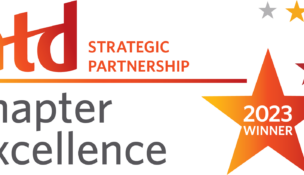Viewpoint: How to effectively manage employees through a time of crisis
Contributing Writer //June 12, 2020//
Viewpoint: How to effectively manage employees through a time of crisis
Contributing Writer //June 12, 2020//
As we try to navigate through this COVID-19 pandemic, we probably don’t feel a lot of equilibrium right now.
In a crisis, we experience sudden uncertainty, and we may feel a lack of control. By finding the balance between your internal needs and your organizational demands, you can effectively manage your employees, and yourself, through any crisis.
I’ll set out an effective crisis communication process and essential tips for managing employees when things are upside down in the outside world. By incorporating these tips, you help to create a calmer, and therefore more productive, workforce and workplace, even at a distance.
First, business leaders should approach employees in crisis with a clear and cohesive communication plan and process.
Identify and articulate the “why” of your communication, especially when you’re conveying organizational changes and new procedures. Recognize that your role as a leader is to develop strength and resiliency, both within yourself and within your organization.
Next, determine the “how” behind a change or new process. This includes communication timing, who’s in the lead, and who’s managing the communications.
Then clearly identify the next steps for implementation. Decide on “what” information your employees should know, as well as consider who should know what information. Following this communication planning framework will lower anxiety for you and your employees.
Second, stay grounded in your organizational anchors, such as core values, mission, and business goals. Anchor your team, focusing on short-term goals engaged in reaching realistic and attainable goals.
Try using “sprint meetings,” which are short, frequent, consistent meetings to check in on how work is progressing, identify unexpected challenges, and celebrate successful outcomes.
Third, review and consider adapting your approach to productivity and performance. In times of crisis, remember that your employees are also under intense stress. Tap into your emotional intelligence and encourage employees to find new opportunities, pathways, and settings in which to learn.
By being clear on performance expectations during a crisis, you allow employees to focus on a defined outcome and thereby ensure the achievement of organizational goals.
Keep in mind that it’s entirely possible to manage employees in crisis while building your organization’s agility and opportunities for growth. Leaders can and should be a beacon of resilience.
It’s wise to recognize what’s happening in your reality and be aware that another’s reality may be very different. It’s also important that every leader engage in self-compassion and self-care techniques, so the reflection of your strength and resilience as a leader will spread among your team.
When businesses experience sudden uncertainty and feel a lack of control, we as leaders are in the driver’s seat and charged with effectively managing employees by balancing stakeholder and organizational demands. Just as we’re reminded before takeoff to put the mask on ourselves before assisting others, we must do the same now.
We don’t know how long this pandemic crisis will last, but while we’re here, we must demonstrate that we’re resilient, agile leaders, fully capable of leading through choppy waters.
Jean Meeks Koch is the CEO and founder of Positively People, where she channels numerous areas of expertise into her work guiding organizations through change. Jean is recognized as an expert in organizational structure and behavioral dynamics. She has helped clients grapple with large-scale change, organizational restructuring, leadership and team development, executive coaching, psychometric personality and competency assessments, and more. More information is available online or at 843-800-5332.
e















